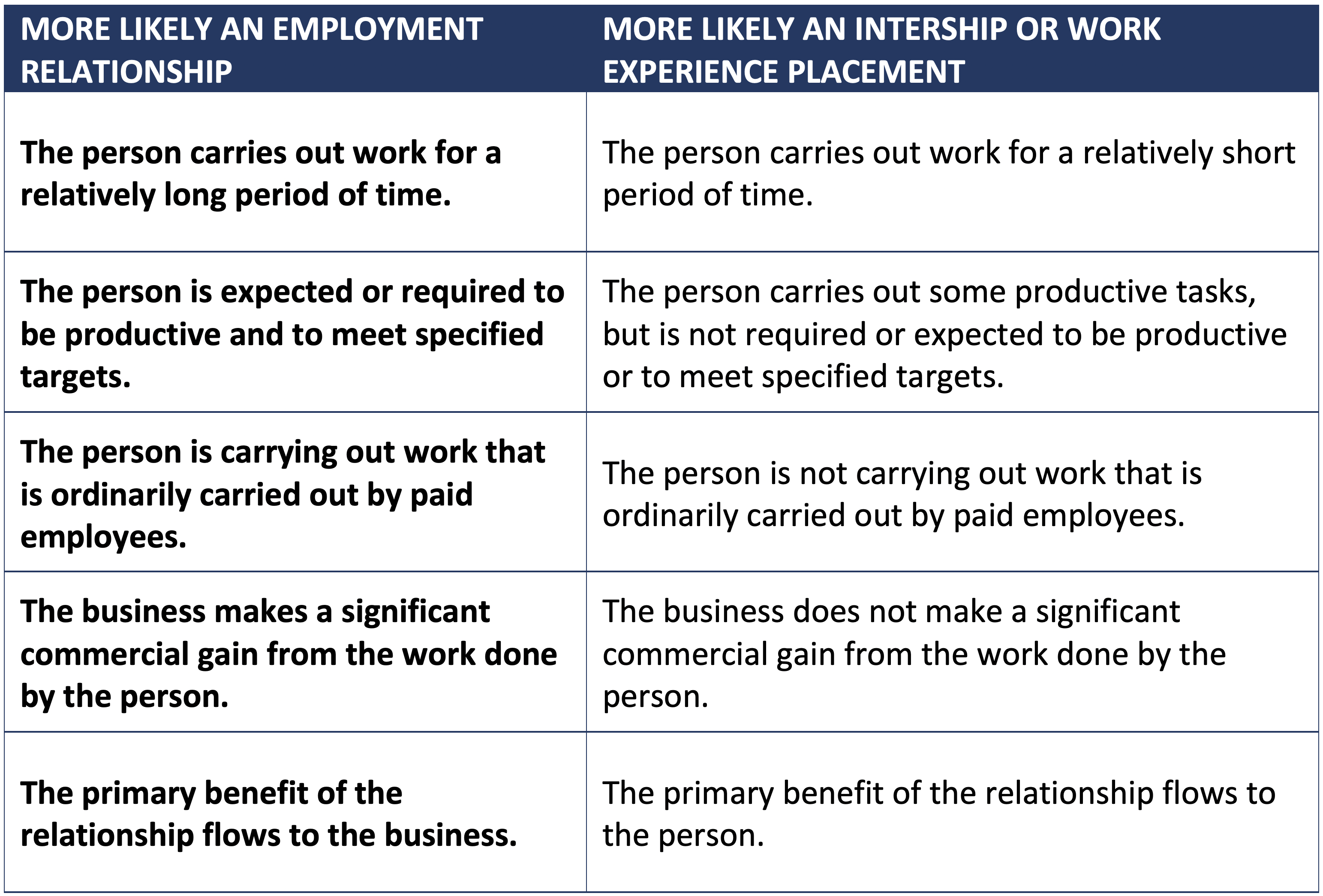Internships and work experience placements have recently received a lot of media attention. Mamamia attracted criticism for offering a three week internship at a charity auction, while the Federal Government’s proposed internship scheme has come under fire for its alleged illegality.
In this context, any employer who wishes to offer unpaid internships or work experience placements must be careful to ensure that the programs which they design are legal. This article discusses two ways in which employers can do this.
Unpaid internships
A person who carries out work for a business as an employee is entitled to be paid in accordance with the relevant Modern Award or Enterprise Agreement. A person who carries out work as part of an internship or work experience placement will not be an ‘employee’ for the purposes of the Fair Work Act 2009. This means that the business for which he or she carries out work is entitled not to pay them.
In Fair Work Ombudsman v Crocmedia Pty Ltd [2015] FCCA 140 and Fair Work Ombudsman v Aldred [2016] FCCA 220, Judge Riethmuller set out some of the factors that a court will use to determine whether a person is carrying out work on behalf of a business as part of an internship or work experience placement or as an employee. These factors are set out in the following table:

As the table suggests, the border between unpaid internships or work experience placements and employment relationships is far from clear. They can very easily shade into each other.
With this in mind, employers who wish to design internship programs should keep in mind the following principles:
- Employers should clearly articulate the educational goals of the program. These educational goals should be specified in all advertisements for, and documentation associated with, the position.
- The program should involve tasks and opportunities that do not involve productive work which might ordinarily be carried on by an employee. This could include providing the intern with the opportunity to observe others carrying out work, devising short training modules on ‘soft skills’ outside the work that is ordinarily carried on by the business, and simulated work exercises.
- Productive work which might ordinarily be carried on by an employee should only be assigned to carry out the educational purposes of the placement. If such work is assigned, it should be assigned on an ad hoc basis and only after the person has carried out alternative tasks of the kind suggested above. It should be supervised by a senior employee who provides guidance on the task before it is carried out, and constructive feedback on the person’s performance after it is completed.
- Placements should run for the shortest period of time in which the goals of the program are likely to be achieved. They should rarely last for more than a few weeks.
Vocational placements
Vocational placements are a means by which an employer can offer unpaid work experience to students as part of an educational course that they are conducting at university or TAFE.
Section 12 of the Fair Work Act 2009 defines a vocational placement as a placement that has each of the following features:
- The person undertaking the placement is not entitled to be paid any remuneration.
- The placement is undertaken as a requirement of an education or training course.
- The placement is authorised under a law or an administrative arrangement of the Commonwealth, a State or a Territory.
How can JFM Law help?
If you are concerned about the implications of your Company’s internship program or work experience placement, contact JFM Law on (02) 9199 8597 for a no obligation chat. If you would rather get in contact through email, send your question through or by email at wehelp@jfmlaw.com.au.
The information contained in this post is current at the date of editing – 6 June 2024.






